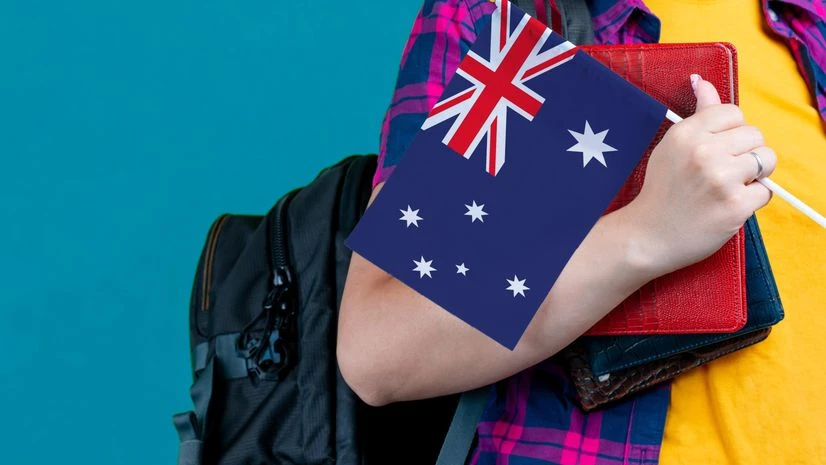In a significant setback for Indians aspiring to study in Australia, the Albanese government has more than doubled the international student visa application fee by 125 per cent, raising it from A$710 to A$1,600 (Rs 39,546 to Rs 89,118). This new fee structure takes effect from today, July 1. Additionally, recent regulations now prohibit visitor visa holders and students with temporary graduate visas from applying for a student visa while onshore.
"The changes coming into force today will help restore integrity to our international education system and create a migration system which is fairer, smaller, and better able to deliver for Australia," said Home Affairs Minister Clare O'Neil in a statement on Monday.
Impact on Indians
"International education plays a vital role in the Australian economy. The hike could significantly impact the number of Indian students choosing Australia as their study destination. It may even prompt many to consider alternatives, given that the US charges $185 (Rs 15,433), Canada around $110 (Rs 9,178), and the UK approximately $620 (Rs 51,732)," Aritra Ghosal, founder and director of OneStep Global, told Business Standard.
"While we acknowledge Australia's efforts toward sustainable management of educational expansion and quality, this policy change may pose financial challenges for many potential students. It underscores the need for nuanced policies that balance affordability with Australia's commitment to maintaining educational excellence and diversity," Manisha Zaveri, Joint Managing Director, Career Mosaic added.
Other migration-related measures also came into effect on Monday. Key changes include:
More From This Section
— Raising the Temporary Skilled Migration Income Threshold to A$73,150 (Rs 40,73,847) from A$70,000 based on annual indexation.
— Shortening the duration of Temporary Graduate Visas and reducing the age eligibility.
— Ending “visa hopping” by closing loopholes that allow students and other temporary visa holders to continuously extend their stay in Australia.
— Extending the length of time temporary skilled migrants can remain in Australia between employer sponsors from 60 days to 180 days.
— Implementing the Strengthening Employer Compliance Bill 2023 against employers exploiting migrants.
— Introducing the Workplace Justice Visa Pilot to enable temporary visa holders to remain in Australia for a short period while pursuing workplace justice.
Official data released in March indicated that net immigration surged by 60 per cent, reaching a record high of 548,800 people in the year leading up to September 30, 2023.
Stricter regulations on visa extensions
In addition to the fee hike, the government is tightening rules to prevent foreign students from continuously extending their stay in Australia. In March, English language requirements for these visas were made more stringent. In May, the requisite amount of savings international students needed to secure a visa was increased to A$29,710 from A$24,505, marking the second hike in less than a year.
Changes to the Australian Temporary Graduate Visa
The Temporary Graduate visa programme allows international students who have completed a course registered under the Commonwealth Register of Institutions and Courses for Overseas Students (CRICOS) to stay in Australia.
“The Post-Study Work and Graduate Work streams in the Temporary Graduate Visa Programme will be renamed as Post-Vocational Education Work stream and Post-Higher Education Work stream," said Anuj Gupta, CEO of Youngrads.
The qualification used to meet the Australian study requirement determines the stream for which one can apply. Other qualifications held won't be considered in determining eligibility.
— If you hold an associate degree, diploma, or trade qualification, you should apply for the Post-Vocational Education Work stream. The qualification must be closely related to your nominated occupation on the Medium and Long-term Strategic Skills List (MLTSSL).
— If your qualification is degree level or higher, you should apply for the Post-Higher Education Work stream.
Post-vocational education work stream
The maximum eligible age for Post-Vocational Education Work stream applicants will be reduced to 35 years at the time of application. Hong Kong and British National Overseas passport holders will still be eligible if they are under 50. Applicants no longer eligible due to the age reduction may be eligible for other visas.
"Applicants may continue to stay for up to 18 months under the Post-Vocational Education Work stream," Gupta added.
Post-higher education work stream
The maximum eligible age for Post-Higher Education Work stream applicants will also reduce to 35 years. Hong Kong and British National Overseas passport holders will still be eligible if they are under 50. Applicants no longer eligible due to the age reduction may be eligible for other visas.
Stay periods will change to the following:
Bachelor degree (including honours) – up to 2 years
Masters (coursework and extended) – up to 2 years
Masters (research) and doctoral degree (PhD) – up to 3 years.
Stay periods for Indian nationals
Gupta highlighted, "The duration of stays for Indian citizens, outlined in the Australia-India Economic Cooperation and Trade Agreement (AI-ECTA), remains unchanged: Bachelor's degree (including honours) – up to 2 years, Bachelor's degree (with first-class honours in STEM, including ICT) – up to 3 years, Masters (coursework, extended, and research) – up to 3 years, and Doctoral degrees (PhD) – up to 4 years."
According to the University Living Indian Student Mobility Report 2023-24, Australia hosts over 200 higher education providers, including 42 universities and 151 institutes of higher education, maintaining its appeal as a top study destination for Indian students. In 2023, about 450,000 students were enrolled in Australia's higher education sector, with 17 per cent being Indian students. Projections suggest that 170,000 Indian students will choose Australia by 2025, spending over $10 billion during their studies.

)